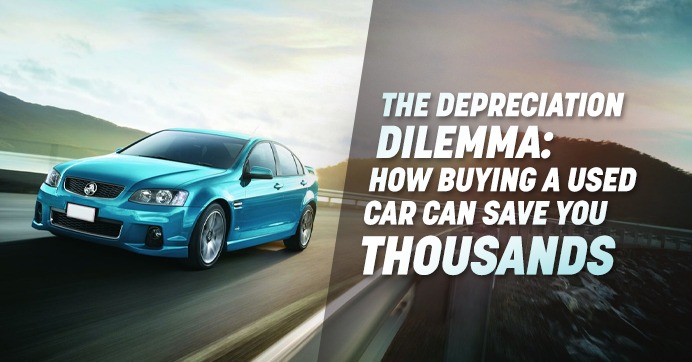The Depreciation Dilemma: How Buying a Used Car Can Save You Thousands
When it comes to purchasing a car, the dreaded "D" word often rears its ugly head: depreciation. This financial beast silently gnaws away at the value of your shiny new vehicle, leaving you with significantly less than what you paid for. However, there's a secret weapon to combat depreciation and save thousands – buying a used car. In this blog, we'll delve into the depreciation dilemma, uncover its true cost, and explore how buying a used car can be a savvy financial move.
Depreciation is the process by which a car loses value over time. As soon as you drive a new car off the dealership lot, it begins to depreciate, and the rate of depreciation is often steepest in the first few years. But what does this mean in practical terms?
Immediate Depreciation: New cars can lose up to 20% of their value within the first year.
First Few Years Matter Most: A new car can lose around 50% of its value in the first three years. That's half of your investment down the drain!
Long-Term Trend: While cars continue to depreciate over their lifetime, the rate of depreciation typically slows down after the initial steep drop.
Lower Purchase Price: The most obvious advantage of buying a used car is the lower upfront cost. You're not paying for that steep initial depreciation, allowing you to get more value for your money.
Steadier Depreciation Curve: Used cars have already gone through the most significant depreciation hit, so the rate of decline is slower. This means you'll lose less money over time compared to a new car.
Historical Reliability Data: With a used car, you can access a wealth of data on how that specific make and model have performed over the years. This can help you choose a reliable vehicle with a proven track record.
Lower Insurance Costs: Insurance premiums are typically lower for used cars than for new ones. This further reduces your overall ownership costs.
Certified Pre-Owned (CPO) Options: Many manufacturers offer certified pre-owned programs, where used cars undergo rigorous inspections and come with extended warranties. This combines the benefits of a used car with some of the security of a new one.
While buying a used car can save you thousands, it's essential to be a smart shopper:
Do Your Research: Investigate the car's history, maintenance records, and reviews.
Have It Inspected: Get a trusted mechanic to inspect the used car before purchase to uncover any hidden issues.
Consider Certified Pre-Owned: CPO vehicles provide extra peace of mind, thanks to manufacturer-backed inspections and warranties.
Negotiate the Right Price: Don't be afraid to haggle when buying a used car. The initial asking price is often negotiable.
The depreciation dilemma is real, but it doesn't have to leave you feeling financially defeated. Buying a used car is a practical and cost-effective way to sidestep the worst of depreciation's blows and save thousands of dollars over the life of your vehicle. Plus, with the right research and precautions, you can find a reliable used car that suits your needs and budget. So, the next time you're in the market for a car, consider going the used route and watch your savings grow. Your wallet will thank you!

